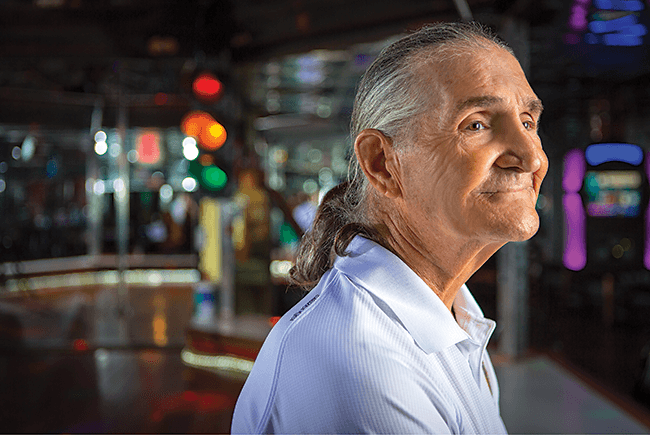Lap dance king, Joe Redner, faces his final days as a freedom fighter for the right for patients to grow.
Florida’s First District Court of Appeal handed down a decision that has cost the so-called “Lap Dance King” the ability to grow his own cannabis.
The ruling overturned Leon County Circuit Judge Karen Gievers’ original decision, which found that Tampa strip club owner and medical cannabis patient, Joe Redner, had every right to farm his own treatments.
Redner plans to appeal the case to the Florida Supreme Court, which will have the final say over the matter. Whether or not the Lap Dance King succeeds, the trial will be a turning point in the implementation and writing of medical cannabis laws across the country — especially regarding patient rights.

From Lap Dance to Legal Trouble
The case was brought to court by the Florida Department of Health and centers on interpretations of the Florida Constitution’s medical cannabis provision. Article X, Section 29 of the document governs the Sunshine State’s medical cannabis laws. It outlines the “production, possession and use” of cannabis by qualifying patients and accredited physicians.
More than seven years ago, Redner became such a patient. He had acquired Stage 4 lung cancer, a particularly nasty and painful form of cancer. His physician recommended he use medical cannabis to treat the disease and ease pain.
Redner, a multi-millionaire, could afford any treatment available, but fresh, not dried, cannabis worked best. But he quickly realized it was nearly impossible to find a consistent supply near his Tampa, Florida home. He decided it would be easiest to grow his own supply. His lawyers thought state laws covered growing.
A Legal Theory
The Lap Dance King’s argument for growing his own cannabis centers around the legal definition of the word “use” from Article X. Redner’s lawyers argued that because medical cannabis patients are entitled to the “possession and use” of the whole cannabis plant, the decision to grow cannabis is a legal way to “use” it.
The three-judge appellate court, however, read the law differently. The judges unanimously decided that because the law did not specifically mention growing cannabis as a possible use of the plant, its cultivation by a medical cannabis patient is illegal. If the law allowed patients to grow their own cannabis, the judges ruled, it would have explicitly said so.

Image via Florida Trend
Why So Serious?
Why would the judges interpret the Florida Constitution with such confinement? After all, the founding principle of American democracy is that people are free first and governed second. The law doesn’t mention the legality of growing willow trees, which can be used to make an aspirin-like pain reliever. Yet nobody believes that willows are illegal despite the lack of specific mention in Florida’s Constitution.
One explanation to the judges’ ruling is that the law also gives the state the ability (or duty) to regulate the cultivation of medical cannabis. Redner’s private operation would fall outside the state’s purview, making it illegal. It might be a case of the judicial branch providing cover for the executive. Something that seems to be increasingly happening at the federal level.
A Legacy Beyond the Lap Dance
Redner is a colorful character who has made millions off a savvy business acumen and a comfortability with strip clubs. He has also stopped Stage 4 lung cancer in its tracks for over seven years, thanks to a cannabis cocktail. But his time is drawing to a close and it’s possible now that he’s eyeing his legacy. Instead of being the “Lap Dance King”, Redner may go down in history as a freedom fighter for cancer patients.
“I can afford [to buy my treatment from a shop]; I’m a multi-millionaire,” he told WUSF News. “But how is a poor patient going to get their medicine when it’s going to cost them $250 or $300 a week or $400 – whatever these cartels want to charge you for it because there’s no competition.”
It’s clear that the people of Florida are on the side of medical cannabis. In 2016, they approved the Constitutional amendment by a wide margin. They also voted in Republican Ron DeSantis as governor in 2018, who promised to undo his predecessor’s decision to keep smokable cannabis out of the mouths of medical patients.
Will He Live Long Enough for One Last Lap Dance?
Redner plans to appeal the appellate court’s decision, but he has some time to get things in order before then. While the outcome may not greatly affect his treatment, it could mean life or death for thousands of less-fortunate Floridians.
Just as First Amendment champions found a hero in Hustler Publisher Larry Flynt, the good people of Florida may be saved by a man known more for lap dances than medicine.





